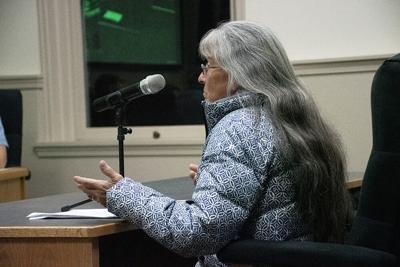By Sean Avery
Columbia Gorge News
THE DALLES — Tense discussion about houselessness and public disruption persisted at the The Dalles City Council meeting on Oct. 13 — the latest chapter of an ongoing disagreement between local charitable food services and public officials.
After debating impassioned commenters over semantics and moral responsibility, council members unanimously adopted an updated public nuisance ordinance, providing the city a legal tool to address properties where repeated problematic or criminal behavior occurs. If a property has three or more qualifying incidents within a 300-foot radius over a six-month period, the city is legally obligated to take action.
By broadening the scope of actionable criminal disturbances and shortening the time period during which such instances can occur, the city can crack down on properties that repeatedly attract offenders within and around their premises.
“This is a tool for cities to ensure people who are opening themselves up to do business with the public, or inviting people onto their property for something, take responsibility,” City Attorney Jonathan Kara said.
Chief of Police Tom Worthy clarified that the new ordinance has no concrete target.
“There’s nothing that we’re aiming towards or angling for,” Worthy said. “It’s purely for the improvement of the city code.”
Sharing that sentiment, the council was surprised to see representatives from local nonprofits present for public comment, reiterating the ordinance’s broad angle.
But expressed intent doesn’t always align with enforced result. For community members involved with Bread and Blessings, this isn’t the first time they’ve been the subject of public nuisance action. For example, the city successfully shut down the organization’s charitable efforts within the St. Vincent de Paul building in January 2024, saying ongoing disturbances on the streets and sidewalks nearby could be tied to their service.
This situation was referenced during the meeting as an example of why the ordinance was being updated — to provide more clarity in addressing similar cases in the future.
Karen Murray kicked off a fervent pushback against the ordinance, arguing it unfairly penalizes property owners or organizations for the actions of individuals over whom they lack authority, such as people on the street causing nuisances.
“How do you tie the violator to the property in a fair way?” Murray said, questioning how to justly and accurately enforce a 300-foot radius. In previous situations, “the violator was across the street, and St. Vincent de Paul got penalized. Why isn’t the violator the one who incurs more?”
Murray challenged the council’s tendency to penalize services that give back to their community, while doing very little to provide for individuals using them as a resource.
“We as a city need to look at what we need in terms of shelter for people on the street who are making these violations and how we are going to get them the help they need,” Murray said. “Is it a roof over their head so they can get their act together?”
Mayor Rich Mays became visibly frustrated with Murray, claiming the updated ordinance is “absolutely necessary,” even arguing a case for a 600-foot radius.
Teresa Yragui-Zeman, who has operated Bread and Blessings for more than 33 years, criticized the ordinance for divvying out blame in the wrong direction, arguing nonprofits like hers do not have the power to police public behavior.
“It’s this idea that you’re blaming the nonprofit for people’s actions,” Yragui-Zeman said. “These people are adults. If you see some kind of action that is inappropriate, then go talk to the person who is doing the inappropriate action.”
Noting that The Dalles does not have a single homeless shelter, Yragui-Zeman highlighted how unhoused individuals in the area have no choice but to utilize public spaces like sidewalks. Any unlawful action committed by such individuals in public space is out of her or Bread and Blessings’ control. “Every day I went out there and told them [to operate legally],” Yragui-Zeman said. “They looked at me and they said, ‘We have a right to be on public land.’”
“Just like, don’t commit crimes,” Kara responded, referencing an incident where someone was struck with a bat.
Yragui-Zeman clarified that many complaints and police calls were in response to non-violent disturbances, such as sleeping on the sidewalk. “Sometimes I feel like you guys are being kind of hard on the nonprofits that are really trying to help,” Yragui-Zeman said.
Council members voted to pass the ordinance, and the meeting was adjourned.























Commented